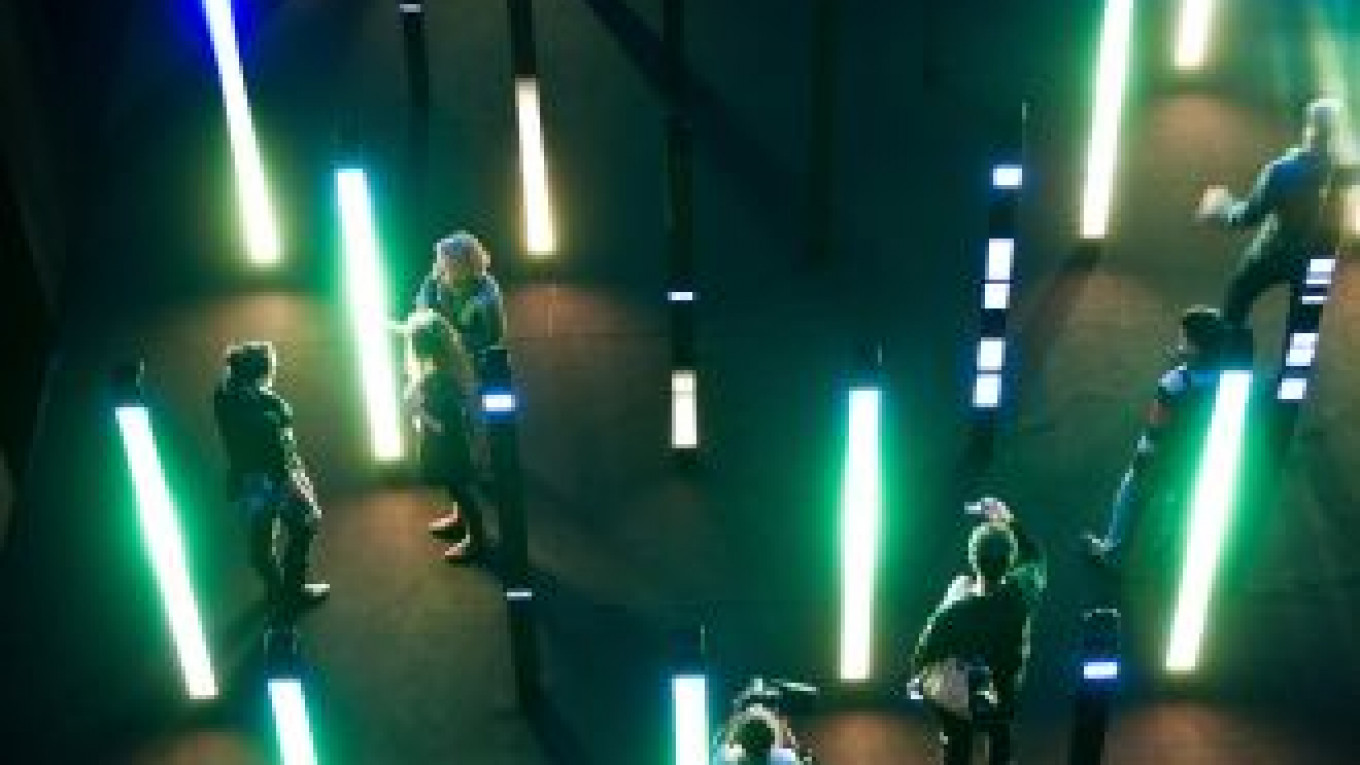St. Petersburg — The 18th-century Mikhailovsky Castle started off a very 21st-century festival when it’s facade became the backdrop for a spectacular light show that started the country’s first large-scale festival devoted to the audio-visual art.
The building seemed to fold itself up, as if it wanted to put itself in a suitcase for a holiday, during the light show.
The show launched the start earlier this month of the Yota Space International Festival of Audiovisual Arts, which organizers hope to make an annual event. It runs till Saturday in the Frunzensky Univermag.
The idea is to show Russia what audio-visual art is and inspire Russian artists, organizers said.
Many of the works on show are fit to be waved at or played with, as they have an interactivity that still remains rare in Russian galleries and shows. At times the show resembles a visit to a science museum in London or New York as people queue up to play a virtual piano or see how different objects react to their presence.
One display by MSA Visuals, set up by artist Memo, shows the typical mix of art, technology and design with a screen where you move and see yourself covered in gold.
One of the most fun works on show is of a whiteboard covered in different colored stick-it notes. Anyone can grab one, move it and see how the sound changes.
Before the start of the festival, British producer Brian Eno, responsible for the sound of the likes of David Bowie and Coldplay, spoke at a lecture at the St. Petersburg conservatory on “What is culture, and why do we need it?”
Eno, who once lived in the city, has his installation “77 Million Paintings” on show. The piece, dubbed “visual music” by Eno, uses software to create new images from his own artwork.
“One of the most interesting things about generative art is that the artist doesn’t know exactly what the result is going to be,” Eno has said in interviews. “There will be unique moments for every viewer, and every viewer’s experience will be something different.”
Artist Jason Bruges has created a series of artworks in public places, such as a fake platform in the Sunderland metro where travelers waiting to get on the train see the shadows of virtual travelers on the other side.
His work at Yota Space, “Peasouper,” is named after the smog that used to fill London in the 1950s. Visitors see themselves appear up out of the fog. “It’s a work that looks at our digital narcissism,” Bruges said as he flicked away on his iPad to show his other works.
The festival’s opening day ended with an eight-hour concert in the univermag where British electro kings Hot Chip headlined after flying in especially from Colombia.
It was a good concert, Hot Chip multi-instrumentalist Al Doyle said, as it was the band’s last one of the year. He said it slightly marred them being told to get off stage before they could finish their encore.
Yota Space runs till Sunday. Frunzensky Univermag, 60 Moskovsky Prospekt. St. Petersburg. http://space.yota.ru.
A Message from The Moscow Times:
Dear readers,
We are facing unprecedented challenges. Russia's Prosecutor General's Office has designated The Moscow Times as an "undesirable" organization, criminalizing our work and putting our staff at risk of prosecution. This follows our earlier unjust labeling as a "foreign agent."
These actions are direct attempts to silence independent journalism in Russia. The authorities claim our work "discredits the decisions of the Russian leadership." We see things differently: we strive to provide accurate, unbiased reporting on Russia.
We, the journalists of The Moscow Times, refuse to be silenced. But to continue our work, we need your help.
Your support, no matter how small, makes a world of difference. If you can, please support us monthly starting from just $2. It's quick to set up, and every contribution makes a significant impact.
By supporting The Moscow Times, you're defending open, independent journalism in the face of repression. Thank you for standing with us.
Remind me later.






